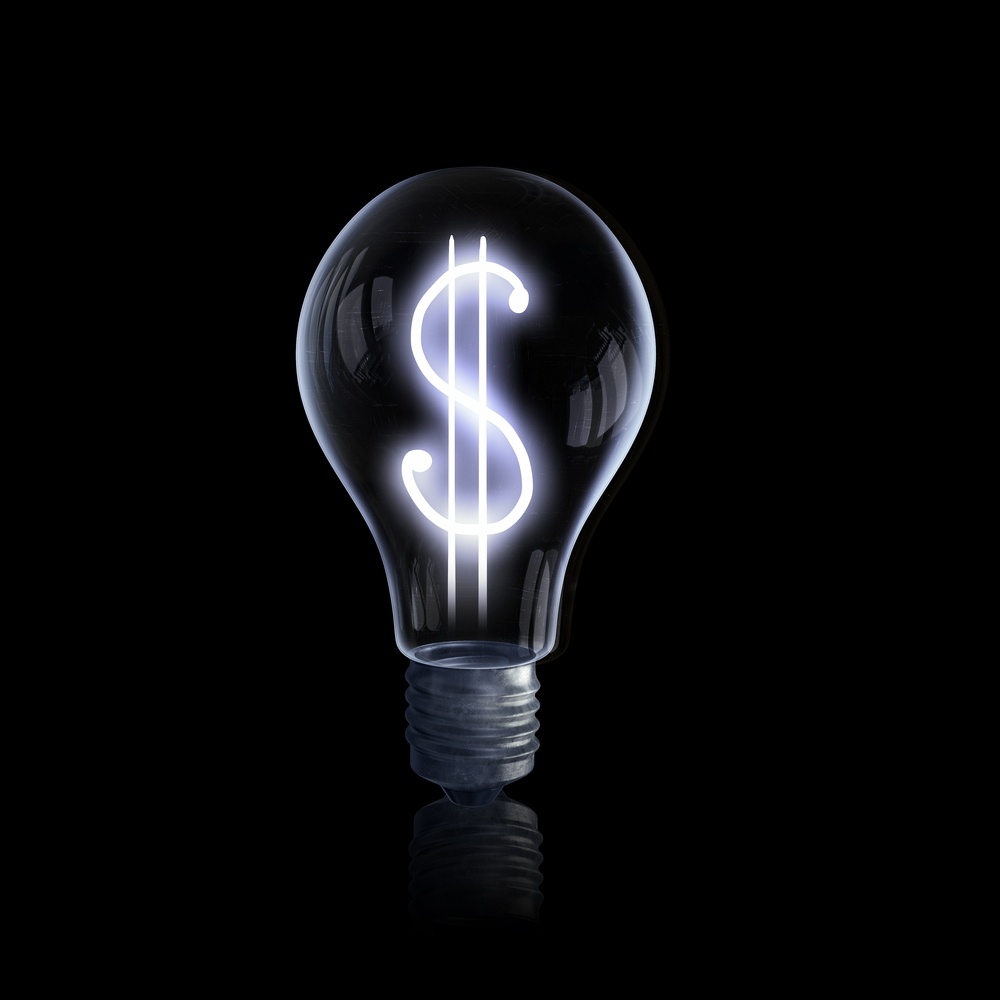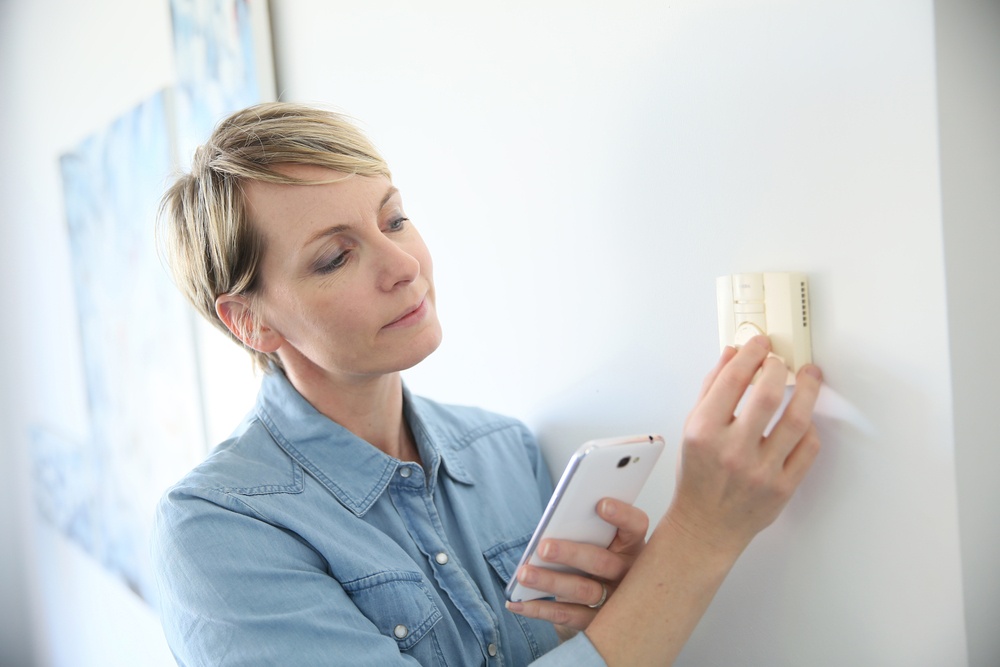The average household spends around £1,249 a year on gas and electricity making energy one of the biggest annual costs for UK households.
One way to reduce this cost is to make the home more efficient and new homes today are very efficient with excellent insulation and energy saving features like LED bulbs. Adding these features to existing homes costs money though.
However, the cheapest way to reduce energy costs is to reduce wasted energy consumption. Regardless of whether you live in a new home, or an older home, it does not cost anything to reduce wasted energy such as heating an empty home or room or leaving the lights on when you are away. Doing some simple things can go a long way to reducing energy consumption further and thereby saving you money, while also being eco-friendly!
Here’s a few tips to help you.
Heating and cooling
More than half the money spent on fuel bills goes towards providing heating and hot water.
As a rule of thumb, you can save around 3% on your heating bill for every degree that you turn down your thermostat. Save by turning your heating down by 1 degree. But don’t go below 18 degrees if you have small children, are elderly or health concerns.
Turning down your room thermostat by just one degree can save around £75 a year.
Make sure furniture isn’t blocking your radiators, as they will absorb the heat.
Turn down radiators in rooms you don’t use much and keep the heat in rooms by drawing curtains and closing doors.
Fit reflector panels behind your radiators. These can reflect back into the room 95% of the heat energy radiated from the rear of your radiator.
Close your curtains at dusk to retain the heat in each room. In the winter line your curtains or use thermal or heavier curtains to save money.
Installing a room thermostat, a programmer and thermostatic radiator valves and using these controls efficiently could save you around £75 a year.
The right controls will allow you to set your heating and hot water to come on and off when you need them
Heat only the areas of your home that need heating
Set the temperature for each area of your home.
During hot summer days, shading your windows will help to keep the heat out, and on cold nights curtains or blinds help to keep the heat in.
Opening curtains and shades in winter on sunny days will warm the room.
Lighting and electrical devices
Replace any old light bulbs with LED light bulbs, these can use up to 97% less energy than an old style incandescent light bulb. Replacing just one old light bulb with an energy saving one can reduce lighting costs by up to £78 over the lifetime of the bulb. Plus they last up to 12 times longer than ordinary light bulbs.
Turn your lights off when you’re not using them. If you switch a light off for just a few seconds, you will save more energy than it takes for the light to start up again, regardless of the type of light. This will save you around £15 a year on your annual energy bills.
Use new, energy efficient appliances where possible.
Turn appliances off standby. Almost all electrical and electronic appliances can be turned off at the plug without upsetting their programming. So called "vampire appliances" on standby can use up to 25% of the energy they use when fully switched on. You can save around £30 a year just by remembering to turn your appliances off standby mode. Households with more gadgets could see annual savings reach between £50 and £80.
You may want to think about getting a standby saver which allows you to turn all your appliances off standby in one go.
Consider plug sockets that can be turned on and off via your phone, to make sure you switch unused appliances off. You could use cheaper timer plugs to schedule turning appliances off.
Avoid over-charging fully charged devices at the mains and avoid charging devices over-night.
Cooking and kitchen appliances
Try not to open the oven door while cooking if possible. Heat lost by opening the door causes the oven to use more energy. You can also try to be less reliant on your oven a cook a greater proportion of your meals using the microwave.
Turn off the oven just before cooking finishes. The oven will hold its temperature well.
Put food in to the oven as soon as it reaches the right temperature. Consider putting food in before it is fully heated rather than pre-heating.
Avoid using oversized pots and use a lid where you can. Stacked steamers are a great of harnessing the power of one hob to cook more than one item.
Use a microwave for cooking vegetables, heating soup and any other form of heating rather than sauce pans on a cooker / kitchen range
When boiling a kettle just put enough water into it for your needs. Over time, the cost of boiling all that excess water can mount up.
Only fill the kettle with the amount of water that you need and save around £6 a year.
Place the freezer in the garage or coldest room of the house
Defrost these appliances regularly, this helps them to run more efficiently. Bear in mind that some fridges and freezers self defrost.
Pack your fridge and freezer. Food acts as insulation, so keeping your fridge and freezer stocked lessens the amount of time it has to run to stay cool.
Washing and bathing
Take a shower instead of a bath. Use the shower rather than the bath whenever possible - it uses considerably less energy. Also, as showers and baths account for most of a household's hot-water use, cutting showers from 20 minutes to 10 minutes could slash water-heating costs by 25%.
Spending one minute less in the shower each day will save up to £7 a year off your energy bills, per person.
Fit a water efficient shower head. This will reduce your hot water usage while retaining the sensation of a powerful shower. A water efficient shower head could save a four person household as much as £70 a year on gas for water heating, as well as a further £120 a year on water bills if you have a water meter.
Check the hot water heating isn’t on all the time, use the timer instead so it heats the water for when you need it.
Don't leave taps running unnecessarily, use the plug and keep the water in the basin. You can save around £25 a year by washing up in a bowl rather than using a running tap.
A dripping hot water tap can waste enough hot water to fill half a bath in just one week, so fix leaking taps and make sure they’re all fully turned off.
Remember wasting warm water charges you twice – once for the water, and once for heating it – unnecessarily adding to your bill.
Washing at 30 degrees rather than 40 degrees can be a third cheaper, meaning savings of up to £52 a year – though you should make sure you have the right detergent for this.
When using the washer, select a quick wash if clothes aren't very dirty
Wash full loads rather than just a few items. When possible use a setting of 40°C or even 30°C. By doing this you can use 1/3 less electricity.
Use a clothes horse / clothes line, rather than the tumble dryer to dry clothes. In the summer, use an outdoor line. In the winter, you can use a drying rack and your radiators.
Put the rack near your windows on sunny days to expedite the drying process and take your laundry off the radiators as soon as it’s dry, as this will enable the heat to go into the room.
Fill the dishwasher before using. Use the economy setting if you have that option. In some dishwashers this can be more efficient than washing by hand.
Use your smart meter and monitor you usage
Installing a Smart Meter lets you track your consumption with accurate and real time information. But remember that you need to take action based on the information from the smart meter to save money. it will not save money for you.
Keeping a watchful eye on your consumption levels can help you decide if and when you have to change the way you use energy.
The information on a typical energy bill can be confusing, but understanding it can go a long way to helping you get to grips with your energy usage at home.
If your electricity supply company can provide you with a night rate meter, this allows you to use cut price electricity at off peak times (typically 11 pm to 8pm). If you are a "night owl", you can do washing, dry clothes and use other high powered appliances during this period.
Intelligent home technology
All of the activities above require you, or the occupants of the home, to remember to do something to reduce energy consumption. For example, you need to remember to turn off the lights when you leave the home. Or make sure that the heating does not turn on when you are delayed coming home.
Smart home technology gives the opportunity to control these features of your home when you are out. So for example, if you forget to turn off your lights, you can reach for your smart phone and turn them off even after you have left. This is convenient and definitely an improvement, but wouldn’t it be better if you didn’t even have to think about this and the home did this all for you, without you having to tell it.
For more information on this, we have created a free downloadable e-book - Intelligent Homes are the evolution of Smart Homes.
This is what Wondrwall intelligent home automation does. It monitors your activity in the home, and the environmental performance of your home, and automatically controls the heating and lighting to ensure you stay comfortable at the same time as pro-actively reducing energy consumption.



